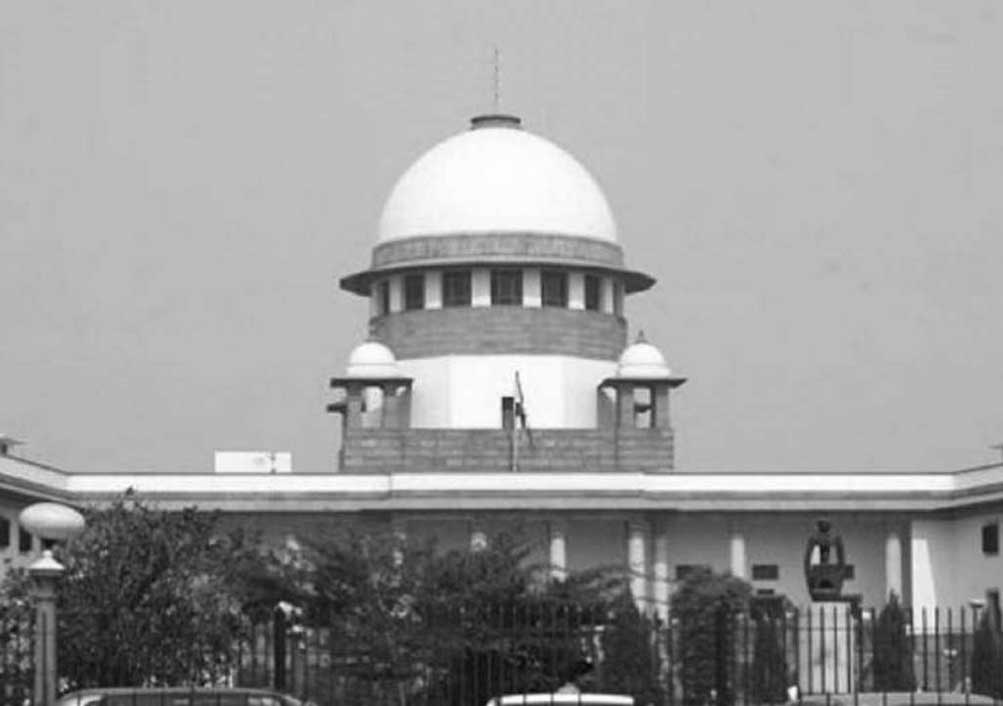In Civil Appeal No. 6411 of 2023 -SC- Supreme Court expands scope of limitation period extension to include period within which delay can be condoned, citing Covid-19 pandemic
Justice J.K. Maheshwari & Justice K.V. Viswanathan [03-10-2023]

Read Order: Aditya Khaitan & Ors v. IL and FS Financial Services Limited
Chahat Varma
New Delhi, November 2, 2023: The Supreme Court has recently allowed the filing of written statements in a money recovery case despite the expiration of the limitation period. The Court cited orders issued in response to the COVID-19 pandemic, which extended statutory deadlines.
The present appeals challenged the judgment of the Calcutta High Court dated 26.02.2021. By the said judgment, the High Court denied the applicants/defendants’ prayer to take their written statements on record. The High Court's basis for denial was that the 30-day period for filing the written statements had expired on 08.03.2020. Additionally, the High Court had stated that since the orders of this Court under Article 142 of the Constitution of India had only extended the period of limitation and not the period within which the delay could be condoned, the applications to accept the written statements could not be entertained.
In the present case, IL and FS Financial Services Limited had filed a money recovery suit against nine defendants in August 2019. The 30-day period for filing written statements had expired on March 8, 2020, with an additional 90-day condonable period. However, no statements were submitted by the defendants during this time. Later, they applied to extend the time for filing written statements, citing the impact of the COVID-19 pandemic and the Supreme Court's orders extending limitation periods. The plaintiffs opposed these applications, arguing that the limitations had already expired before the Supreme Court's orders took effect. The Calcutta High Court sided with the plaintiffs, rejecting the written statements.
The division bench of Justice J.K. Maheshwari and Justice K.V. Viswanathan in its observation, noted that during the global pandemic, it was unreasonable to expect the parties to act promptly to protect their rights. This was the moment when the Supreme Court, using its powers under Article 142 of the Indian Constitution, issued orders to extend statutory deadlines, recognizing the unique circumstances.
The bench discussed the various orders related to the extension of limitation periods in response to the pandemic. These orders were issued in suo motu proceedings titled In Re: Cognizance for Extension of Limitation and were dated 23.03.2020, 06.05.2020, 10.07.2020, 08.03.2021, 27.04.2021, and 23.09.2021. They highlighted the contrast between the orders issued before and after the pronouncement of the Sagufa Ahmed case in September 2020.
The bench noted that the orders of 23.03.2020 extended the period of limitation to address the challenges posed by the pandemic, giving litigants more time to file their proceedings. Subsequent orders, including the one dated 08.03.2021, recognized the improving situation with the pandemic and aimed to gradually return to normalcy. These orders excluded the period from 15.03.2020 to 14.03.2021 when computing the limitation period for various proceedings.
The bench emphasized that the orders issued after 23.03.2020 expanded the scope of extension. They not only extended the period of limitation but also excluded the period from 15.03.2020 to 14.03.2021 for the purpose of computing outer limits within which the court or tribunal could condone delays.
In this context, the bench emphasized that the outer limit within which the court or tribunal could condone the delay in filing the written statement was 120 days from the date of service of summons, as stipulated by the amended Order 8 Rule 1, CPC.
Thus, the bench noted that in the case at hand, although the summons were initially served on 07.02.2020, with the 30-day period expiring on 08.03.2020, and the outer limit of 120 days concluding on 06.06.2020, the application for admitting written statements and requesting an extension was filed on 20.01.2021. By applying subsequent court orders issued on 08.03.2021, and onwards, which excluded certain time periods, the applications submitted by the applicants on 19.01.2021, were considered to be well within the extended time limits. Therefore, the bench ruled that the judgment of the High Court should be set aside based on the revised time limitations provided in these orders.
For the reasons stated above, the appeals were allowed and the written statements filed on 20.01.2021 were directed to be taken on record.
Sign up for our weekly newsletter to stay up to date on our product, events featured blog, special offer and all of the exciting things that take place here at Legitquest.




Add a Comment